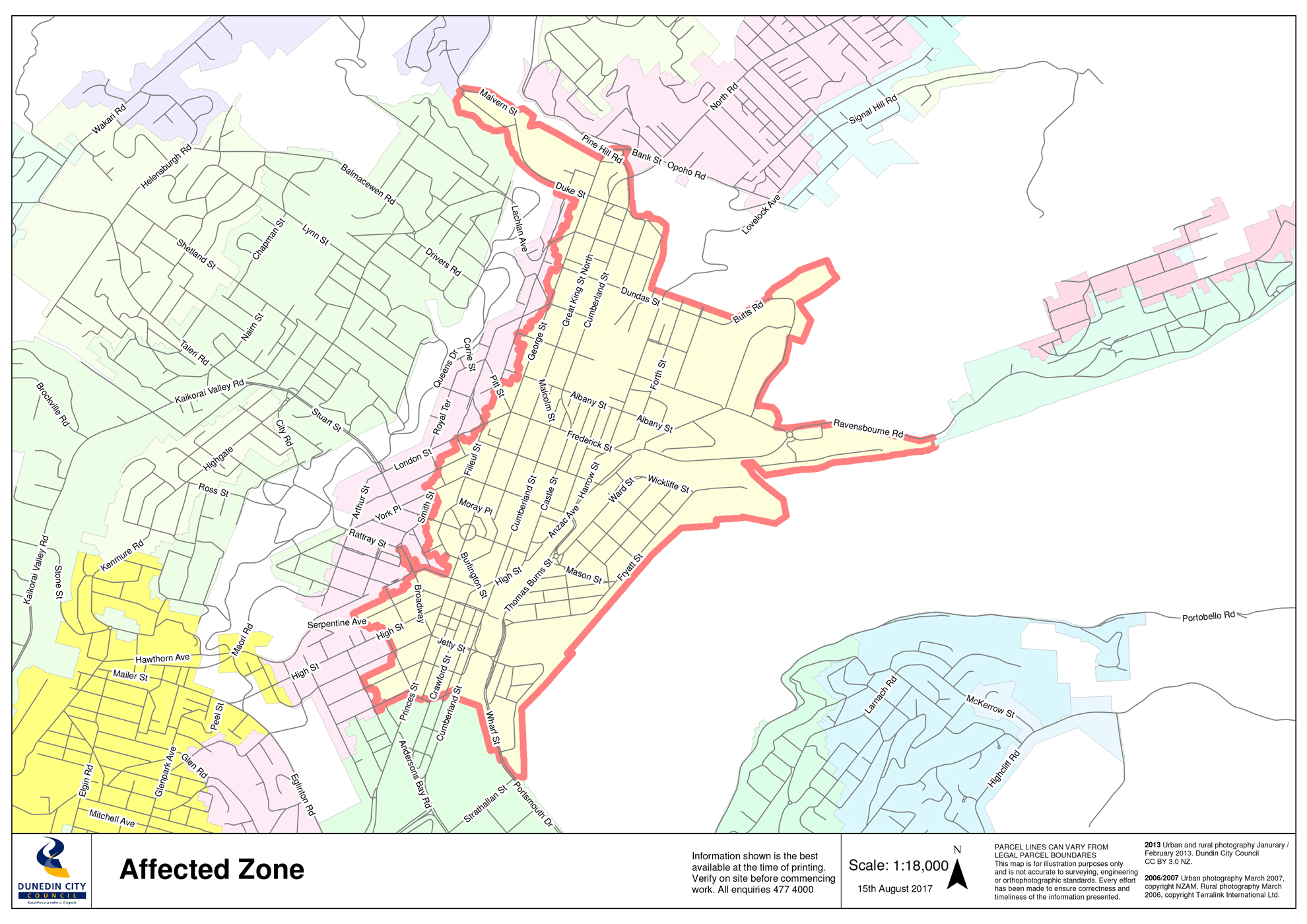Dunedin faces days of disrupted water supplies following the discovery raw water has been entering the drinking supply.
It was confirmed this morning untreated ``raw'' water being spilled from the Ross Creek Reservoir had been finding its way into the drinking water network since Monday afternoon.
The discovery was made after a spike in complaints of discoloured water coming out of city taps about 9.30am, and the reservoir's spill was stopped by 10am.
But by then, the raw water had been delivered across a large swathe of the city, from the CBD to North Dunedin, Leith Valley and Woodhaugh, and any area in the central city between the town belt and the harbour.
A boil water notice was issued this morning, covering 1721 residential properties and 826 commercial properties, Council infrastructure and networks general manager Ruth Stokes told a media conference this afternoon.
Council chief executive Sue Bidrose said a fully-treated water supply was expected to be restored by mid-afternoon, but the boil water notice would remain in place until late on Friday at the earliest.
It could only be lifted 24 hours after three days of clear water test results, she indicated.
In the meantime, people covered by the notice were being urged to discard any stored water and items, such as lettuce, which could have been washed with potentially contaminated raw water, she said.
Businesses were also being encouraged to discard food that could be contaminated, and make an insurance claim to cover the cost, she said.
And people returning home should also run their taps for up to 30 minutes, to flush any remaining raw water from their pipes.
The first water test results were not expected until tomorrow, and Dunedin Hospital was yet to report any presentations of people with diahorrea or vomiting after drinking contaminated water.
Earlier today, it was confirmed the council had activated its emergency operations centre to handle the scare, as it raced to flush potentially contaminated water from the city's drinking supply.
Dunedin Hospital has also activated its own EOC, and was relying on water tankers arranged by the council to supply fresh drinking water, Mrs Stokes said.
Eight other water tankers have been dispatched to other parts of the city, including to George St Normal School and Logan Park High School, both in the affected area, she said.
The boil water notice has already resulted in a rush of people buying bottled water.
The raw water released from Ross Creek had entered the city's drinking network through old pipe - no longer recorded on council plans - just below the reservoir.
The raw water came from a ``protected catchment'', and would have been diluted as it mixed with the city's treated drinking water supply, but the health risks were not yet known, she said.
``It some parts it would have been reasonably diluted, but you're basically drinking water that's the equivalent of drinking it straight out of a stream or lake.
``But at the moment I can't tell you with any certainty what risks are associated with that water.''
Southern DHB Emergency Operations Centre Incident Controller Jenny Hanson said some elective procedures had been postponed as a result of the issue.
Staff had been advised not to use or drink the water and bottled water and a tanker were supplying the hospital, Ms Hanson said.
Orderlies were delivering drinking water to all areas of the hospital, she said.
“We’re following infection prevention and control protocols to ensure we keep our patients safe including additional distribution of hand gel and hand hygiene information.
“Some elective procedures have been postponed today.
"Currently we are reviewing elective procedures for tomorrow based on current high acute demand.
"Any affected patients will be contacted by the hospital," she said.
Its emergency department was busy and the public were asked to keep ED for emergencies only.
Public Health South was carrying out surveillance for gastroenteritis (vomiting and diarrhoea), but so far had not obsevered an increase in cases.
"Our staff are doing a fantastic job and we also thank our patients for their understanding.
"We are reviewing the situation on a regular basis and will provide updates if required."
By lunch time the shelves at Dunedin central's Countdown were almost empty of bottled water.
The University of Otago has sent text messages to students warning them to not drink water from the tap.
Some schools have sent emails to parents reassuring them children were not being allowed to drink water at school today.
Central Dunedin cafes have stopped serving coffee and any other items containing tap water.




















